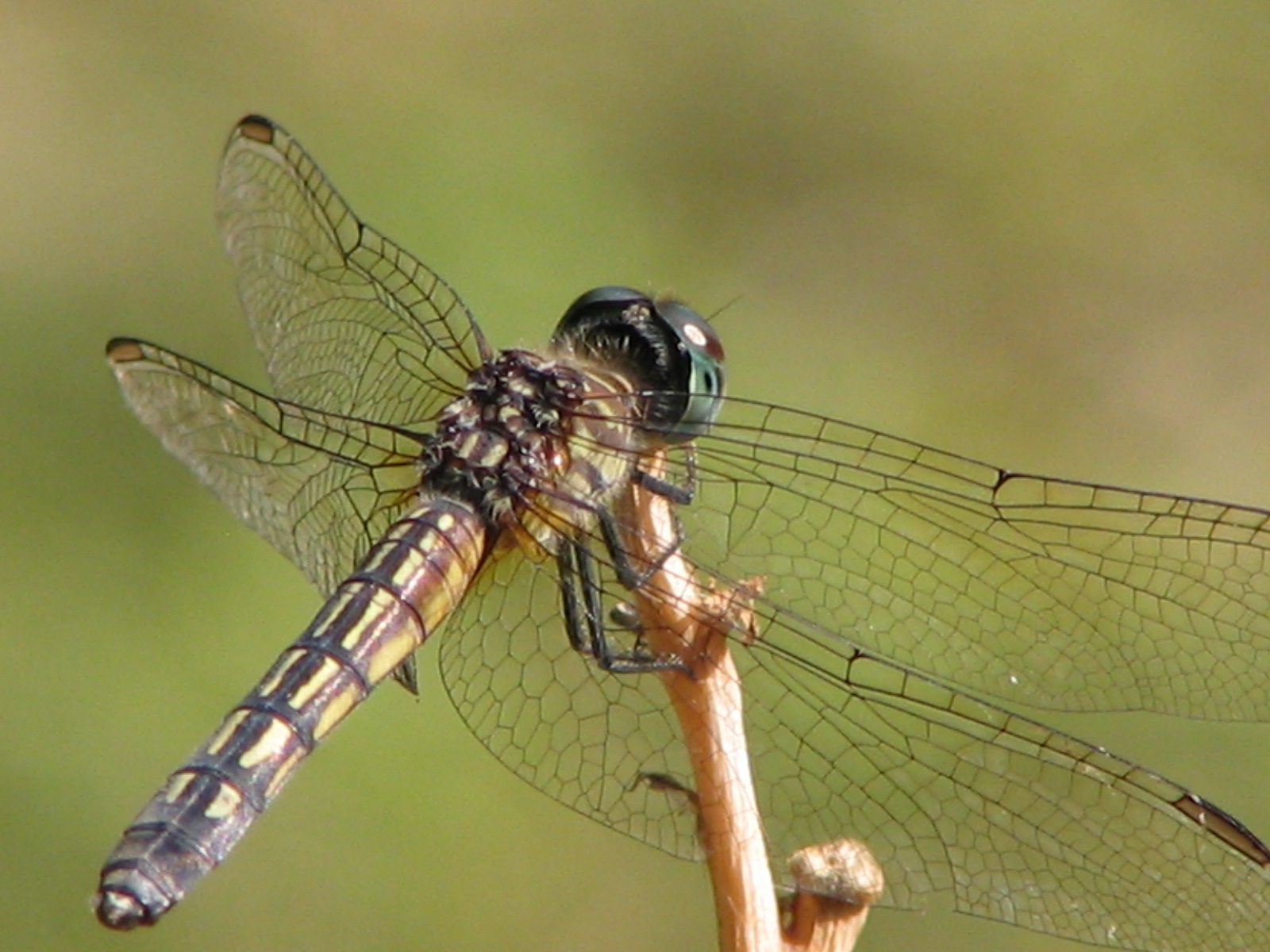Patience Walks
“Hold on, Mom,” she says, dismounting from her pink bicycle again. She crouches down, her face inches from the ground. “This is important,” she tells me.
We’re on one of our walks through the neighborhood, and already we’ve paused like this many times. We’ve examined pill bugs and spider webs, smooth black rocks and purple-flowered weeds, cracks in the sidewalk and one neighbor’s coral-colored roses. I feel the impatience begin to rise in my throat, the impulse to tell her, “Charlotte, get back on your bike. We need to keep going.” But at four years into this motherhood gig, I’ve finally started to learn to push that restlessness down. We don’t have to keep walking. We’re not here to move forward, after all. We’re here to do exactly what my oldest daughter does so well: engage in, watch, and pay attention to the world around us.
———
Ten years ago, I was known as a fast-walker with a tongue to match my gait. I’d chosen a life in political action as a self-assured and overly confident 18-year-old, poised to change the world. I spent part of my eighteenth summer in Washington, D.C.
I loved Washington. I drank in the hum of the city, the power and importance and history you could feel pulsing through its streets. When I used the metro, I admired how D.C. dwellers kept their travels business-like and straightforward, just the way I liked it. Gone were the backstreet meanderings of my small-town Idaho upbringing and the aimless, slow movement of farmers’ daughters with no place in particular to be. Everyone in D.C. had an urgent errand to dispatch and no time or need to interact with fellow passengers or take in the scenery. Eyes on Blackberries (yes, this was pre-iPhone), they walked with purposeful strides: slow-movers to the right, rushers to the left. It was orderly and controlled and swift.
It wasn’t long before I learned to stop smiling at strangers like a wide-eyed Idahoan—it only confused people while they watched my hands nervously, expecting me to offer them an unwanted pamphlet or petition. I stopped noticing the hungry squirrels with their twitching noses that occupied sidewalks or the pigeons cooing beside bus stop benches. I stopped making eye contact and didn’t mind one bit. I felt D.C. and its residents understood me: they were willing to keep moving at my breakneck pace for 60-hour weeks rather than forcing me to tailgate their tractors on the highway like back home.
———
Is it cliche to say my life didn’t end up how I thought it would? Maybe. Maybe it’s only cliche because so many of us have been rescued from the life we thought we wanted when we were 18 years old.
The particulars aren’t relevant, but my fast-moving life in politics was pulled out from under me with little ceremony and less warning when my boss lost his re-election bid. My 10-year plan crumbled, my hopes died, and I felt (with all my teenage fervor) crushed.
The next ten years brought college, a rediscovered affection for writing, marriage, a hodgepodge of jobs, and finally, two curly-haired daughters. Each year, circumstances slowed down my natural pace, sometimes maddeningly, like when I fought my physical limitations while pregnant or experienced the paralysis of anxiety. But nothing—absolutely nothing—has taught me to take a beat and practice some patience like motherhood.
———
Mary Oliver’s Instructions for Living a Life commands: “Pay attention. Be astonished. Tell about it.”
My near-daily walks through our unremarkable, quaint neighborhood with my children look nothing like rushing through the metro tunnels of Washington, D.C. I haven’t moved forward—metaphorically and physically—at that pace in a long time. When my first daughter started biking, I could barely stand the painstakingly slow wandering and near-constant pauses for rocks, bugs, leaves, nuts, and flowers. Still stubbornly stuck in a point-A-to-point-B mindset, I’d chide my daughter and hurry her along. “We have to keep moving,” I’d say.
Until finally, I realized, who says? Is the point of life forward movement? Or am I missing out on paying attention? On being astonished at a stunningly yellow bumble bee or a fragrant lavender bush? On having something to tell about: missing out on the vibrant, beautiful, mundane moments that make a life?
I’ve started to call our neighborhood ambling my patience walks. When Charlotte stoops to pick a dandelion, I allow myself to breathe deeply and watch the wind play in the grass. The endless curiosity of my daughters’ childhood has given me an immense gift I don’t know I could have captured on my own—and it’s not only patience or a slower stride. It’s a sheer astonishment at the quotidian and deep pleasure in the mundane. Now when Charlotte tells me, “Stop Mom, this is important,” I agree. This is important. This is what we’re here to do.
Originally written and published by Emily Fisk.





